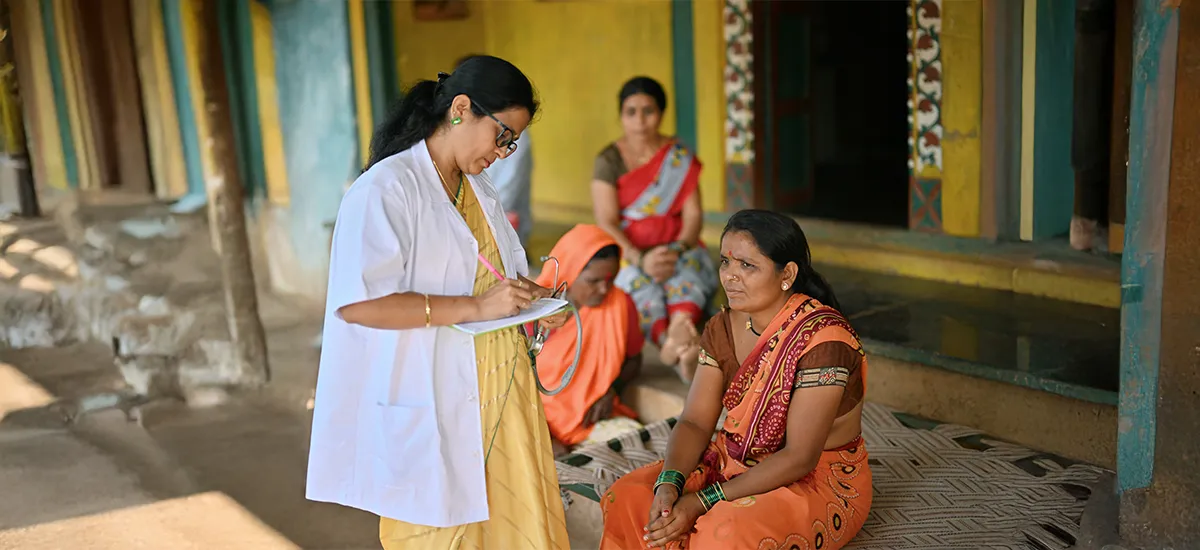Healthcare costs can significantly burden our finances, especially when faced with unexpected medical emergencies or illnesses. Fortunately, the Indian government offers some relief through medical expense deductions and tax deductions for health insurance premiums. These tax deductions help reduce the taxable income, thus lowering the tax liability.
Under Section 80D of the Income Tax Act, Indian taxpayers can claim tax deductions for the premiums paid toward health insurance policies. Whether you are a self-employed individual, a salaried employee, or have dependents, you can benefit from these tax credits for health insurance and reduce your overall tax burden. So, let's explore the various ways to claim tax deductions for health insurance premiums in India.
Eligibility for Tax Deductions
Under Section 80D of the Income Tax Act, individuals and Hindu Undivided Families (HUFs) are eligible for tax deductions for health insurance premiums. The eligibility criteria vary based on the taxpayer's age and the policy type. Here's a breakdown of the eligibility criteria:
· Individual taxpayers: Individuals can claim a tax deduction on the premium paid towards health insurance policies for themselves, their spouse, and dependent children. The maximum limit for tax deduction is Rs. 25,000 per annum for taxpayers below 60 years and Rs. 50,000 per annum for taxpayers above 60 years.
· Hindu undivided families (HUFs): HUFs can claim a tax deduction on the premium paid for health insurance policies covering any family member. The maximum limit for tax deduction is Rs. 25,000 per annum for HUFs with members below the age of 60 years and Rs. 50,000 per annum for HUFs with members above the age of 60 years.
· Health insurance for dependents: Taxpayers can claim a tax deduction on the premium paid for health insurance policies covering their dependent parents. The maximum limit for tax deduction is Rs. 25,000 per annum for parents below the age of 60 years and Rs. 50,000 per annum for parents above the age of 60 years.
Maximum limit of tax deductions: The maximum limit includes the premium paid for self, spouse, children, and dependent parents. However, taxpayers can only claim tax deductions for the amount paid towards the premium through non-cash modes such as cheques, net banking, or credit/debit cards. Cash payments are not eligible for tax deductions.
Illustrations
· Suppose a taxpayer pays a premium of Rs. 20,000 towards a health insurance policy that covers themselves and their spouse and another premium of Rs.15,000 for a policy that covers their dependent parents. In this case, the maximum tax deduction the taxpayer can claim is Rs. 35,000 (Rs. 20,000 + Rs. 15,000)
· If the taxpayer is above the age of 60 years and pays a premium of Rs. 60,000 for a health insurance policy that covers themselves and their spouse, they can claim a tax deduction of Rs. 50,000 (maximum limit for taxpayers above 60 years) instead of Rs. 25,000. The remaining Rs. 10,000 cannot be claimed as a tax deduction.
Required Documents
· Policy Document: A health insurance policy document is the most important to claim tax deductions. It contains policy details, such as the policy number, coverage details, and premium paid.
· Premium payment receipts: Keeping all premium payment receipts as proof of payment is essential.
· Receipts for preventive health check-ups: Taxpayers can claim a deduction of up to Rs. 5,000 for preventive health check-ups for themselves, their spouse, and dependent children. Receipts for preventive health check-ups need to be kept as proof of payment.
· Certificate of disability: If an individual has a disability, a certificate of disability issued by a competent medical authority is required to claim tax deductions.
Other Important Points to Consider
Apart from the eligibility criteria and required documents, there are a few other points to consider regarding tax deductions for health insurance premiums. Let's take a look at some of them:
· Impact of health insurance claims on tax deductions: If a policyholder claims during the policy year, it does not affect the tax deduction on the premium paid. The tax deduction is available on the premium paid, regardless of whether a claim is made. However, if a claim is made on a health insurance policy, the amount received will be taxable if it exceeds the premium paid.
· Tax deductions for premiums paid for family members: Tax deductions are available for health insurance premiums paid for family members, such as spouses, dependent children, and parents. However, the maximum limit of tax deduction is based on the age of the person insured. For instance, if the policy covers the policyholder, spouse, and dependent children, the maximum tax deduction limit will be based on the policyholder's age.
· Comparison with other tax-saving investments: While health insurance is an essential aspect of financial planning, comparing it with other tax-saving investments is important. For example, investments in Public Provident Fund (PPF), National Savings Certificate (NSC), and Equity-Linked Saving Scheme (ELSS) also provide tax benefits under Section 80C of the Income Tax Act. Therefore, comparing health insurance returns and tax benefits with other tax-saving investments is essential before deciding.
· deductions for group health insurance: Employers often provide group health insurance to their employees. The premium paid for group health insurance is not eligible for tax deductions under Section 80D as the premium paid is claimed as an expense by the employer generally.
The Bottom Line
Individuals and HUFs can claim tax deductions under Section 80D of the Income Tax Act for the premium paid toward health insurance policies. The maximum limit of tax deduction is based on the age of the person insured and the type of policy purchased. Taxpayers must keep proper records and receipts to claim tax deductions for health insurance premiums.
Taking advantage of tax deductions for health insurance premiums is important as it reduces taxpayers' tax liability and encourages them to invest in health insurance. Health insurance is essential to financial planning and helps meet medical expenses during emergencies.
In conclusion, we recommend that taxpayers invest in health insurance policies and use tax deductions to optimize their tax savings. By keeping proper records and receipts, taxpayers can easily claim tax deductions and avoid complications during tax filing. Health insurance is an investment in one's health and financial security, and making informed decisions while purchasing a policy is important.





































